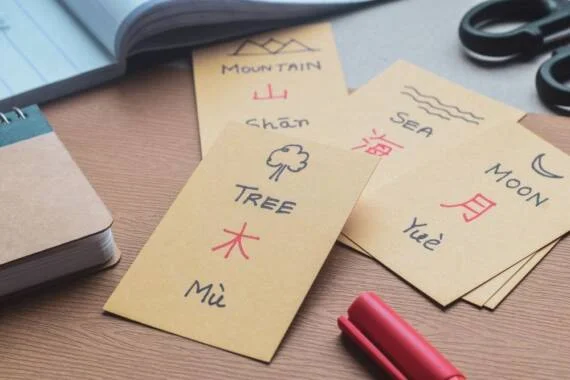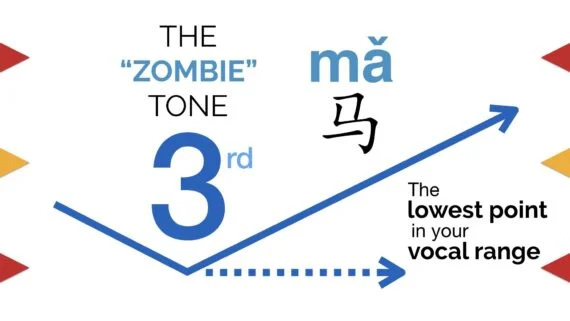The Hardest Sounds in Chinese…Until Now!
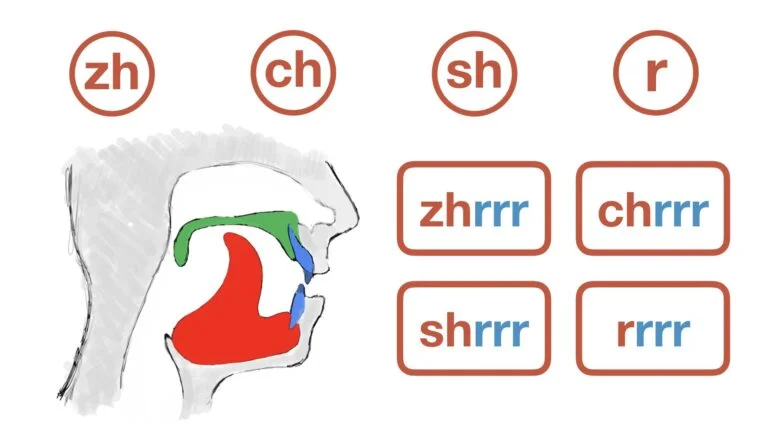
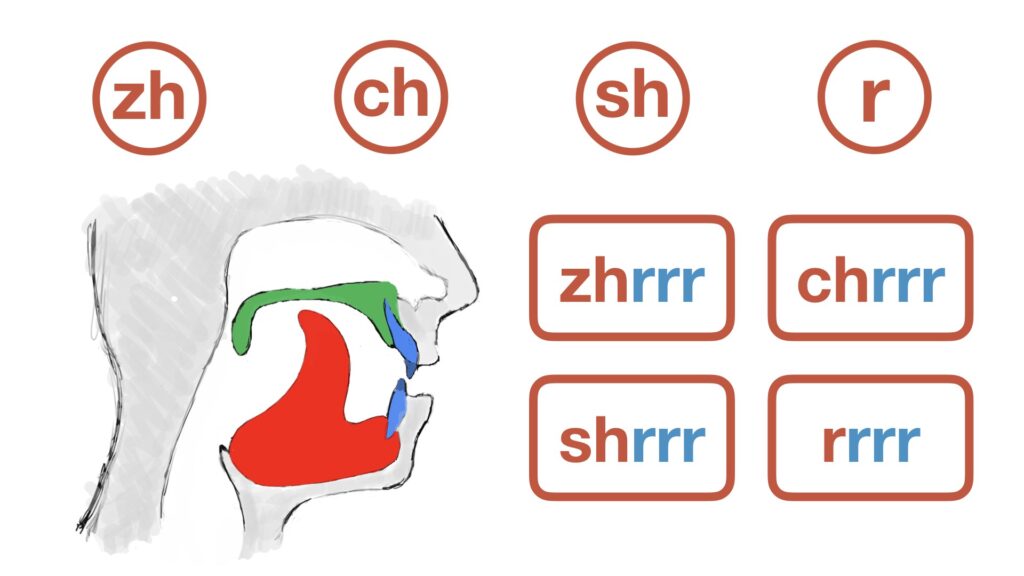
Alright, everyone, the video below is IMPORTANT. Other foreigners we meet in China get these syllables wrong most frequently, so when it comes to priorities when practicing, well, you’ve found number one. “Zhi Chi Shi Ri” are called “retroflex consonants,” which some languages utilize, but English and many European languages do not. These are the first four of the “Fake i” syllables
Zhi Chi Shi Ri: How to Pronounce Them Perfectly
- Rolled tongue and lowered back of the tongue
- Mouth open slightly.
- Tongue curls back with a little angle at the tip. The entire tongue is closer to the throat.
- Maintain this mouth position throughout the entire enunciation of the syllable
Zhi Chi Shi Ri – Each Syllable Explained
ZHI = Explosive burst of air. The most similar letter in English would be “J,” but with the different tongue tip position
CHI = Explosive burst of air. Similar to the English “ch,” but with the different tongue tip position
SHI = Smooth flow of air. Similar to the English “sh,” but much thicker as a natural result of the different tongue tip position
RI = Similar smooth flow of air to “shi,” but sounds very similar to the 2nd “g” in “garage” or the “s” in “measure.” Many consider “RI” to be the most difficult syllable to pronounced in Chinese, but think of it this way: It’s the same as “Zhi, chi, shi” but without the initial sound. Just leave out the “sh” when saying “shi” and there you have it!
What Is The “Zhi Chi Shi Ri” Vowel Sound?
The English alphabet doesn’t have any vowel to represent this sound. “i” was the choice pretty much through aprocess of elimination, but we think the best way to think of this “vowel” sound would be to imagine that it is spelled “rrr.” Zhrrr, Chrrr, Shrrr, Rrrr. If you follow the rules above, this should work as a thought technology to say it correctly.
Remember, any pronunciation that starts with ZH, CH, SH or R has the same tongue position, regardless of what comes after it. (e.g., Zhu, shuang, chui, ran).
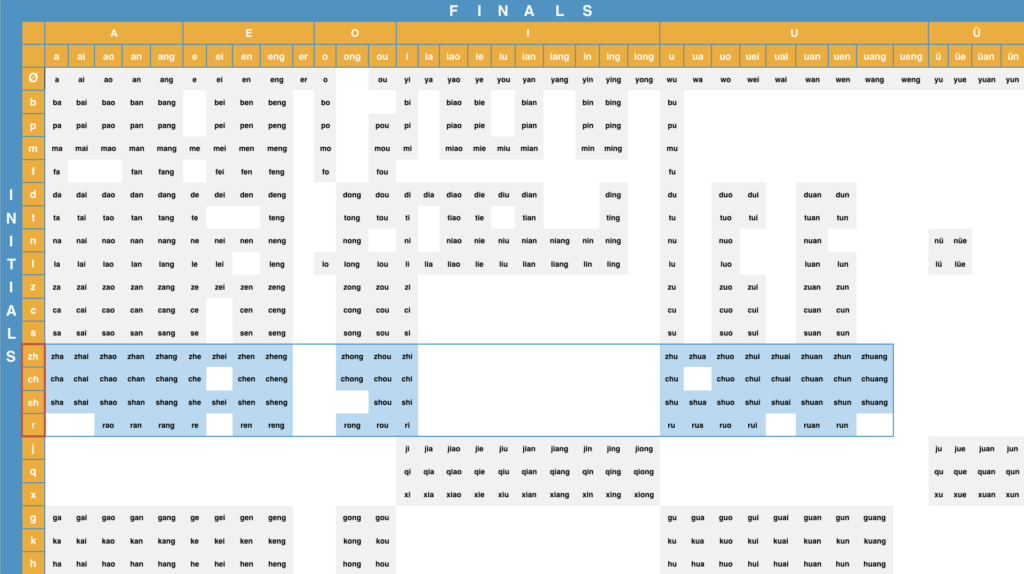
It’s Worth Your Effort
Mandarin pronunciation has two fundamental truths: 1. It’s difficult 2. It’s small. The first truth can be discouraging, but the fact is there isn’t that much to learn. Compared to other languages it is downright tiny…all the syllables fit onto an A4 printer page easily! Regardless of how far you decide to take Chinese, there is no situation where having strong pronunciation won’t be a huge advantage.







